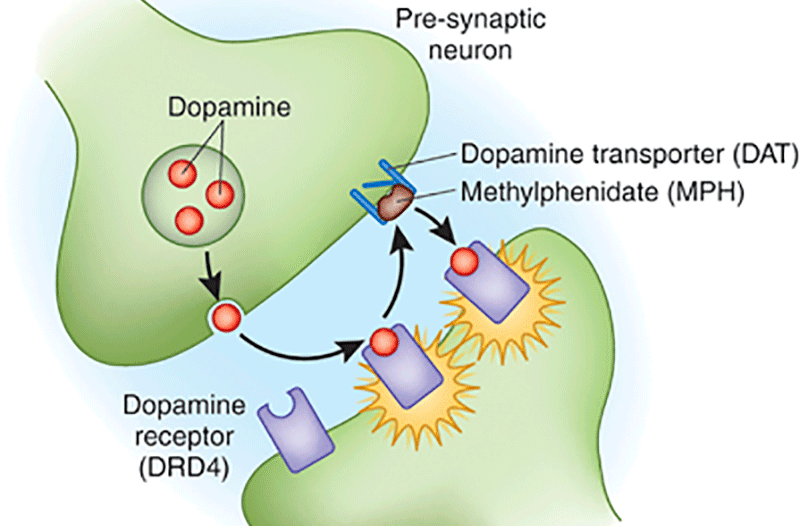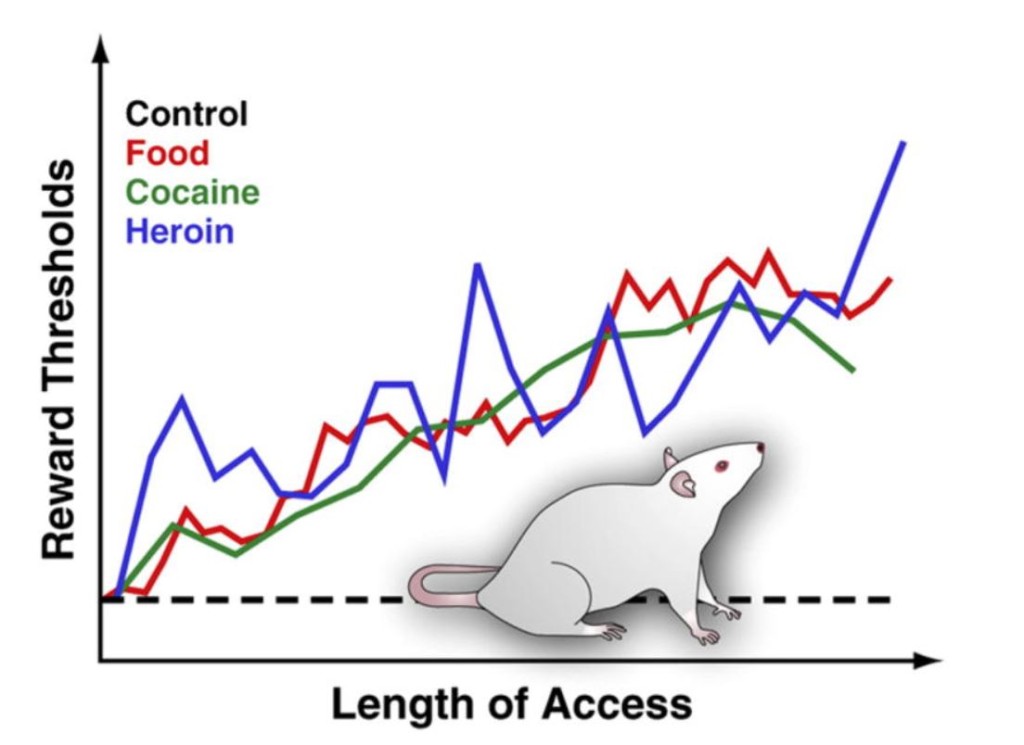Sugar Addiction: Where Does The Willpower Go?

Last Updated April 4th, 2018
It’s midnight – and you’ve been waging war for the past two hours.
On the other side of this conflict lies a dark chocolate cake in the kitchen. It’s already been cut into – nobody will notice an extra sliver gone. All you’d have to do is take the edge off. Just a taste. Curb the craving. The idea spins past again and again.
But there is to be no tiny sliver of cake. That is just a tempting precursor to a normal sized slice. Which itself will be appetizer to a third, fairly large piece – this time potentially with whipped cream and ice cream on top. When the battle is over and the crumbs settle, that one tiny bite of cake has turned into a 2,200 calorie dieting disaster.
Every time it’s the same story – a tiny nibble turns into a full day’s worth of calories at just one sitting. Moderation? Hah! There’s no moderation to be found here. This is an intoxicating seduction that doesn’t stop until you’ve thrown all care to the wind entirely.
And then the guilt sets in, bringing with it a whole new set of problems. Why can’t you stop? Why does it feel so hopeless?
At Weight Crafters, we know this story far too well. For many of our weight loss camp / fat camp / fat farm clients, it hits too close to home.
Before I delve into this topic, allow me to just say that this is one type of eating disorder. A very common type. One that we all struggle with from time to time. Some eating disorders can take much more extreme forms, and many can be life-threatening.
If you believe you or someone you love is struggling with bulimia, anorexia or another related eating disorder, please take steps to get professional help immediately.
The Chemistry of “Just One Bite”
The moment you bite into something tasty, your brain wants – no, demands – more of it. Instantly self-control goes completely out the window. Who needs willpower when you have an entire bag of these delicious potato chips? And every bite is followed by the desire for more.
If this sounds familiar, ask yourself the following questions:
- Do you compulsively eat things you shouldn’t, regardless of known negative consequences?
- Do you find that over time, you must eat progressively more in order to feel better?
- Do you experience powerful cravings if you cannot have the kinds of foods in question?
If you answered yes to any of these, then congratulations – it isn’t pure willpower at work here. All of the above symptoms are characteristics of addiction.
Addiction is the culprit behind the whole thing. That chocolate cake might have been your immediate enemy on the ground, but addiction is the opposing general guiding the attack.
It all revolves around dopamine – the chemical released into your brain that regulates pleasure, motivation and positive reinforcement. Every bite of cake is triggering a release of dopamine. Every release of dopamine makes you feel good. Every time you eat cake and feel good, that connection is strengthened.

What Dopamine Actually Does
Dopamine isn’t just an evil chemical lurking in your brain waiting for you to take up gambling or start doing drugs – rather it is a fundamental building block of how the brain works.
Dopamine is a neurotransmitter. It is a chemical signal used to pass information between the neurons in your brain. It is used for a whole variety of different purposes in different areas of the brain.
To better understand how it plays into addition, let’s look at an example:
1. You have a cupcake.
2. You know that cupcakes taste good.
3. You know that eating cupcakes makes you feel good immediately.
Dopamine is naturally released to the pleasure centers of your brain when you eat. More-so when sugar is involved.
4. You begin to feel good just thinking about your cupcake.
At this point, your brain has already associated the sight of cupcakes with the good feeling you get from eating them. So your neurons begin to produce more dopamine, and simply looking at the cupcake makes you feel good in anticipation.
5. You take a bite of your cupcake, and sure enough – it tastes good and makes you feel good. Everything you already knew about cupcakes has been instantly reinforced.
You just confirmed everything your brain has been saying – that cupcakes are good! And every time your neurons talk to one another, the connections are made just a tiny bit stronger.
6. You now know, more than you ever knew before in your life, that ANOTHER bite will make you feel good too!
And there’s the rub. Your brain is being trained to go for the reward – like a mouse trained to press a button for a treat. The neurons are literally coming alive and building themselves stronger pathways to get from the trigger to the reward.

Over Time the Brain Stops Listening
We’ve written before about fitness plateaus – and how when subjected to a repetitive activity or diet the body adapts to tolerate these at the lowest cost possible. The same principle applies here.
If you only ate one cupcake at a time, and only once a week, you might get the same kind of high every time. But that’s not what’s happening – the stronger the pathways get, the more cupcakes you want. The more you want, the more you eat. The more you eat, the more dopamine gets flowing.
Over time, your brain starts to expect the constant floods of dopamine into the pleasure centers of your brain. As a response to this, as your body continues to grow and rebuild itself it also cuts back on the number of available dopamine receptors in your neural pathways.
This means that while you may still be creating just as much dopamine as before, you will not feel the same level of high as before because your neurons have effectively “stopped listening.”
And that is disappointing. Very disappointing. You took an action that should reward you with a good feeling – but it’s not as good as you expected. So you feel there is no alternative but to try harder.
This is a universal truth about all addiction. Over time you build up a tolerance, and a stimulus that once would shoot you high into the clouds is now merely the base requirement to barely feel normal.
We’ve long seen this pattern in people addicted to drugs. Any smoker (or former smoker) can attest to it. And research has now shown that we do exactly the same thing with food.
Addicted to Doughnuts
The reason “just one bite” doesn’t work is the same reason a recovering alcoholic knows to avoid “just one drink” and a former smoker knows better than to light up “just one cigarette” – the sleeping giant will awaken, the addiction will rage forth in a torrential tidal wave, and all hope will be lost.
You don’t have to have a particular susceptibility to addiction in order to experience this either – everyone is susceptible. Whether you come from a long family line of alcoholics and gamblers or not, the physiologically addictive properties of food can diminish anyone’s self-control from time to time. This is one of the biggest battles with trying to stay motivated to lose weight.
And as long as you’re fighting against the currents of your own brain to feel good by eating, here’s one more compounding fact to consider. Obese individuals have been found to have fewer dopamine receptors than fit ones, in general. This would indicate that obese people do not get the same amount of pleasure from food – which might be giving them constant reason to over-eat out of compensation.
It Doesn’t Have to Stay This Way
Do you ever feel forcefully compelled to eat celery? Ever have a midnight craving for raw carrots? Does a photo of broccoli get you drooling?
The reason cupcakes excite your pleasure/reward systems so much is that they’re full of sugar. Cupcakes as a matter of fact, are purposely designed specifically to do that. So are potato chips. And hamburgers.
Just about all the junk foods you care to name have been crafted with a balance of sweet, salty and/or fat designed to over-stimulate your feel good receptors and give you that high you crave. McDonalds fries might as well be Marlboro reds.
Natural foods on the other hand, contain a healthy balance of sugars and salts. For the most part they have mild flavors that don’t shoot you to the moon on the first bite. They don’t trigger the same kind of addictive reactions in the brain. As a result, we give them the cold shoulder.
“That food won’t make me feel good,” we mutter as we walk past the produce section on our way to the snack cake isle. But wait – that’s exactly what they WILL do!
Don’t keep falling for the deception – yes, that cupcake will taste good. But it won’t make you feel nearly as good after it’s gone and the high has worn off, as a lowly carrot would. The cupcake had no vitamins or nutrients. It just turned into fat on your midsection.
Stop chasing your addictions and start recognizing them AS addictions.
Once you realize which foods cause you to lose control, treat them as if they were toxic. Because to you, they are.
** IMPORTANT LEGAL DISCLAIMER **
The Weight Crafters Blog feed is made available for educational and informational purposes only as well as to give you a general understanding of fitness, weight loss and overall nutrition, and is not to provide specific professional medical or healthcare advice.
By using this blog site you understand that there is no professional client relationship between you and the content publisher. The Blog/Web Site should not be used as a substitute for competent medical, exercise, nutritional or diet product advice from a licensed professional provider in your state.
How did we do?

Rated 4.3 of 5 Stars by 177 readers.

